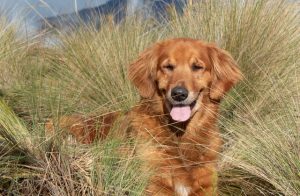A balanced, nutritious diet is essential for keeping your cat from any severe, afflictive and costly diseases. Putting consideration into what you feed your feline friend is very important to sustain and ensure optimal health.
According to the Association for Pet Obesity Prevention (APOP), about 50% of cats are either overweight or obese hence the need to ensure a proper diet and nutrition for your pet.

Deny it all you want but the major reason why our feline friends experience sedentary obesity is that the majority of owners practice “free choice feeding- whereby the cat can easily access food whenever it wants” without as much as any physical exertion.
Typically, owners need to ensure that they feed it at least 2-4 times in a day with a controlled portion of food in order to prevent any health complications.
What is the best diet for cats?
Just like other constrained carnivores, its diet as noted in Raising Cats Naturally by Michelle T. Bernard requires:
Protein
Typically, cats need a healthy, well balanced protein-based diet. The majority of them would prefer a natural source of protein such as from mice, birds, meat or fish.
Diet cat food should contain high amounts of protein and fats in order to sustain the appropriate state of nutrition as well as optimum body weight.
Amino acids
Amino acids are basically the building blocks of proteins. A feline’s diet must contain specific amino acids: the type of amino acids obtained from cat food are referred to as essential amino acids since they can’t naturally be processed in the body.
Generally, these pets use 22 amino acids, of which 11 are essential amino acids of which (some) can only be obtained from animal protein-meat.
According to a study in the journal of nutrition, arginine is an essential amino acid for cats that is responsible for eliminating acute ammonia and is created in the digestive tract during digestion.
In addition to Arginine, felines require taurine in their diet which is responsible for the following processes:
- Promote normal functioning of the skeletal muscles
- Control body weight and sugar levels
- Re-adjusts defects in the blood flow to the nerves
- Sustains the immune system
However, unlike arginine deficiency which has immediate effects on the cats, a taurine deficiency takes about 5 or more months to fully manifest.
Other nutrients, as well as requirements for your feline, include the following:
- Fatty acids.
- Vitamins.
- Minerals.
- Water.
However, ensure that the cat diet has significantly low amounts of carbohydrates. While most mammals have a carbohydrate-digesting enzyme known as amylase in saliva, these pets rather have measurably low amounts of amylase.
How to put your cat on a diet
While all pet foods come with specific feeding recommendations, you don’t always have to follow them. In the real sense, the label recommendations aren’t the total requirements as much as a majority of pet caretakers believe that they must follow the stipulated label amounts-and if this is the case, it’s only a matter of time before your cat becomes overweight.
- First, take your pet to a vet for a thorough physical exam, blood chemistry tests, inclusive of thyroid hormone analysis and an accurate weight record of the cat.
- Gradually over a period of 3-4weeks start introducing your feline to the suggested diet while continuously increasing the amount of the suggested food. The best way to do this is to prepare a mixture of the old and the new diet to acclimatize your pet to an improved, well-balanced diet. Slowly reduce the amount of the old diet while increasing that of the new diet as time goes by.
- Be keen on the feeding habits of the cat on a daily basis. Once it has completely acclimatized to the new improved diet, reweigh your pet at 4-week intervals to ensure an optimum healthy weight is achieved.
- However, if you do not notice any changes- say, no weight loss or gain then the food portions are excessive to the required portions. Additionally, always use the same scale while reweighing your cat and make sure it doesn’t lose more than half its original weight.
- Ensure consistency in the cat’s feeding habits and immediately report any cases to your vet where your cat fails to eat for more than a day.
- Once an interactive portion-controlled feeding method has been established, you will notice significant weight loss especially if your feline is overweight or obese, until a certain point where there will be optimum healthy weight maintenance-not fat or skinny, just the right weight.
Raw food diet for cats: the pros and cons
According to the American animal hospital association, raw food diets (raw meat) are neither safe or nutritionally healthy due to the increased risk of salmonella poisoning, food safety as well as contagion problems.
However, according to Lisa A. Pierson, DVM a veterinarian in California, feeding cats raw food is okay if you are careful and keen enough to know exactly where you get the meat (rabbit and bone-in chicken) from, parboil it effectively, grind it and add minerals such as taurine or arginine to ensure it feeds on a healthy diet.
Additionally, it is much cheaper than a majority of the high quality canned food she adds.
However, choosing to feed your pet raw food is a personal choice and a food safety issue, which undertakes the possibility of food poisoning. Nonetheless, the majority of absolute and balanced food diets rarely alter the nutrition of the meat potion whether it is cooked or raw.
In cases whereby, your cat is suffering from a medical condition, introducing a therapeutic or functional diet may help to ensure it receives the proper tailored nutrition.
Veterinary recommended cat diets are usually tailored to offer maximum nutritional support for those with problems such as:
- Liver disease.
- Diabetes mellitus.
- Food allergies or sensitivities.
- Obesity
- Gastrointestinal conditions.
- Dermatitis and inflammatory skin conditions.
- Urinary and bladder conditions.
- Chronic kidney disease.
However, it is important to consult the vet and take your cat for a thorough medical checkup to get a proper veterinary recommended diet.
sources
- https://www.petmd.com/news/health-science/nws_multi_US_pets_obese_too-10815
- https://academic.oup.com/jn/article-abstract/108/12/1944/4770338?redirectedFrom=PDF
- https://www.ncbi.nlm.nih.gov/pubmed/95689
- https://catinfo.org/
- https://www.petdiets.com/Homemade-Diets
- https://books.google.com/books?id=gFs1IBIhtx8C&printsec=frontcover&source=gbs_atb#v=onepage&q&f=false





Leave a Reply
You must be logged in to post a comment.